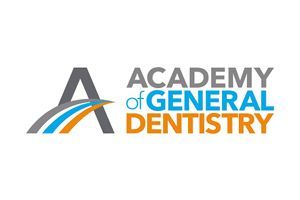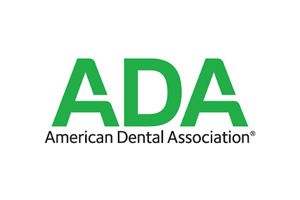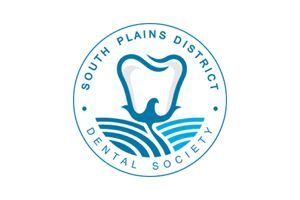TMD or TMJ Therapy
Lubbock, TX
Same-Day Appointments
All the Latest Technology
Accepting New Patients
Hours:
Request Call Back
Hero Request Form
Thank you for contacting us.
We will get back to you as soon as possible.
Please try again later.
Manage Your TMJ Pain Sith Specialized Care
Jaw pain, headaches, or trouble chewing can be signs of temporomandibular joint (TMJ) disorders. At Yellow House Dental & Implant Center (Yellow House Dental) in Lubbock, TX, we focus on diagnosing and treating these issues. Our team uses cutting-edge technology and tailored care to provide effective TMJ solutions.
Our services include:
- 3D dental imaging
- Laser treatments
- CBCT scans
- Digital oral scans
- In-house crown creation
- 3D printing
- Digital X-rays
If TMJ pain is affecting your daily life,
contact us for a personalized consultation.
Identifying TMJ Disorder Symptoms
TMJ disorders can greatly affect your everyday activities. At Yellow House Dental, we help you spot and address these issues. Look out for these common signs:
- Jaw discomfort
- Jaw clicking or popping
- Painful chewing
- Face pain
- Frequent headaches
- Ear discomfort
- Neck and shoulder aches
- Restricted jaw movement
If you notice any of these symptoms, it's time to talk to our TMJ specialists.
The Importance of Professional TMJ Treatment
Getting professional care for TMJ disorders is key to maintaining good oral health and overall wellness. Yellow House Dental offers specialized TMJ treatment because:
- Untreated TMJ can cause ongoing pain
- Proper diagnosis leads to effective treatment
- We create personalized care plans
- We target the cause, not just symptoms
- Our technology ensures accurate diagnosis
- Treatment can boost your quality of life
- We offer gentle treatment options
- Our team has years of TMJ expertise
If you're dealing with TMJ discomfort, reach out to us to explore your options.
Why Choose Yellow House Dental
At Yellow House Dental, we go beyond basic treatment. We provide:
- Individual patient care
- Clear treatment explanations
- Modern dental technology
- Continuous staff training
- Over four decades of experience
- Same-day appointments when possible
- Help with PPO insurance
- Patient education focus
Experience our patient-first approach to TMJ care. Make an appointment now.
Contact Us
You can find relief from TMJ pain. Yellow House Dental in Lubbock, TX is here to help improve your quality of life. Our skilled team uses the latest dental technology to provide effective, personalized TMJ treatments.
Contact us today to book your thorough TMJ evaluation.
- Bullet text
- Bullet text
- Bullet text
- Bullet text
- Bullet text
- Bullet text
- Bullet text
- Bullet text
- Bullet text
- Bullet text
Title or Question
Describe the item or answer the question so that site visitors who are interested get more information. You can emphasize this text with bullets, italics or bold, and add links.Title or Question
Describe the item or answer the question so that site visitors who are interested get more information. You can emphasize this text with bullets, italics or bold, and add links.Title or Question
Describe the item or answer the question so that site visitors who are interested get more information. You can emphasize this text with bullets, italics or bold, and add links.

CP #1 Headline
CP #1 Body
CP #1 CTA Lead-in
Not valid with any other offers or promotions. Restrictions apply.
Must mention this coupon at the time of scheduling.
What causes TMJ pain?
TMJ pain can result from several factors, including teeth grinding (bruxism), jaw misalignment, arthritis, stress, or injury to the jaw joint. Sometimes, the muscles around the joint tighten due to stress or poor posture. At Yellow House Dental, we use advanced 3D imaging and CBCT scans to determine the root cause of your pain and create a treatment plan that targets the source — not just the symptoms.
How do I know if I have TMJ disorder or something else?
Common signs of TMJ disorder include jaw clicking or popping, pain while chewing, headaches, ear discomfort, and limited jaw movement. Because these symptoms can overlap with other dental or sinus conditions, a professional evaluation is the best way to confirm TMJ. Our diagnostic process combines physical assessment with digital imaging to ensure an accurate diagnosis.
What treatments are available for TMJ at Yellow House Dental?
We take a personalized approach to TMJ treatment. Depending on your diagnosis, your plan may include laser therapy, bite adjustment, night guards, or customized dental restorations. We also use 3D printing and in-house crown creation to correct bite alignment and reduce pressure on the jaw joint. Our goal is to relieve pain and restore normal function as gently and efficiently as possible.
Can TMJ go away on its own, or should I see a dentist?
Mild TMJ discomfort may improve with rest, stress management, or avoiding hard foods. However, persistent pain or recurring jaw issues often indicate an underlying problem that won’t resolve without professional care. Early evaluation can prevent long-term damage and chronic pain. If your symptoms last more than a few days or interfere with eating, contact Yellow House Dental for a thorough TMJ assessment.
Gallery Heading H2
Reviews

We Get to Know
Each Patient
We take the time to understand your unique dental needs and concerns.
Call for an Appointment












